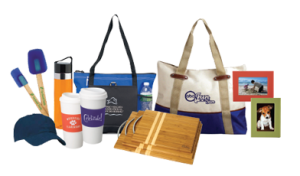One of the best things about living in the internet age is that you can build a business–a profitable one–based solely on your personality and your works of art:
- Ree Drummond, for example, started out with a simple homemaking blog and some great photography. Now she has a show on the Food Network, has published a series of cookbooks and is even the author of a successful novel.
- Heather Armstrong, the author of Dooce.com is known as the Queen of the Mommy Bloggers (and sometimes as The Original Mommy Blogger) by publishing stories about her life and kids online.
- Matthew Inman, better known as the Oatmeal, started drawing and posting comics online for free and has since published several very successful books based on those comics.
- Jerry Holkins and Mike Krahulik are the creators of the Penny Arcade webcomic and have parlayed that into the uber-successful PAX, the Child’s Play charity, a board game and even a successful web series.
There are dozens of other success stories just like these. Musicians like Marian Call who have built incredibly successful careers, comedians like Marc Maron who have made massive comebacks thanks to independently produced podcasts …you get the idea.
Of course, these peoples’ success isn’t purely personality based. There are a lot of different factors that played into their success, like marketing, promotions and the idea we’re going to focus on in this article: merchandising.
A lot of new business owners–particularly those who are hoping to build a personality based business a la Jenny Lawson (The Bloggess)–make the mistake of assuming that their blog posts, videos and songs are enough to earn a living. They publish these things for free, slap a donation button up on the website and think that’s all there is to it.
It isn’t.
You can have millions of fans but if you want them to fork over some of their hard earned money, you need to offer them something real in exchange for that money. Otherwise, most feel that asking for donations is akin to panhandling. People want to feel like they are supporting a real thing, not just an idea. Some people will get around this by saying that a portion of the donation will be sent to charity but then you risk people not wanting to support the charity you’ve chosen.
Digital Goods
Some people manage to eke out livings sticking strictly to digital merchandise. They create eBooks, mp3s, videos, etc and sell them via an on-site portal. Others, like Molly Lewis and Len Peralta use crowd funding services like Patreon to bring in money. Patreon is sort of like Kickstarter but much less complicated and is more about creating sustainable income than bringing in a large lump sum of money all at once.
Physical Goods
Even if you do decide to go with crowd funding or virtual sales, it is still a good idea to have physical merchandise as well. Some bloggers do well with drop shipping and print on demand services like Red Bubble or Zazzle. If you really want to make money, though, it’s good to make sure that you keep some physical inventory on hand, too.
You can bring them to networking events and conventions. You can sell them right out of your car if you happen to meet a fan on the fly. Things like T-shirts, mouse pads, mugs…heck, even stickers and postcards can bring in some nice cash.
How to Decide What Makes Good Merch
It’s one thing to know that things like shirts, mugs, etc make good merch. But what are you supposed to put on these things? Which posts should you turn into videos, mp3s, or eBooks? Even if you have a vocal audience, it can be hard to figure out what to brand (besides your logo).
One of the best ways to get ideas is to pay attention to your analytics. Which of your existing digital creations gets the most traffic and sees the most viewing time? Keep in mind that people aren’t just using computers to access your work. Like the Appsee blog reminds us, people are just as (if not more) likely to check out your work on their mobile devices. This means that you have to be able to monitor how their smart devices are accessing your work as well as monitoring more traditional means of consumption.
The point is–even though you undoubtedly have a sparkling personality and a way with words–the Kardashians are a fluke. You cannot create an empire based on yourself without offering something that people can take home with them. Well you can, but you need to have something real to sell if you ever want to make money.

No comments yet.